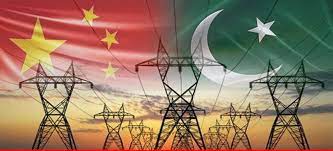Pakistan banks on CPEC to overcome power shortage

Gwadar Pro
Islamabad: Federal Minister for Power Division Khurram Dastgir Khan has said that the country was banking on the China-Pakistan Economic Corridor (CPEC) to overcome to power shortage and eliminate the load-shedding.
“We are taking pragmatic steps to overpower load-shedding by focusing on generation, transmission and energy conservation to provide maximum relief to people,” the minister maintained in a statement.
“The present government has already added 1,980 MW (Megawatt) cheap electricity to the system from Thar coal reserves in just 10 months besides 720 MW and 1100 MW from Karot Hydropower and K-3 Nuclear Power Plants,” he added.
Khan said the previous Pakistan Muslim League (Nawaz)-led government led by the then Prime Minister Nawaz Sharif had successfully added over 10,000 MW electricity to national grid through China Pakistan Economic Corridor (CPEC) projects during 2013 to 2018. He informed that total power generation from Thar coal stood at 2640 MW with formal commissioning of 1320 MW Shanghai Electric Thar Coal Project under the CPEC. “Another 330 MW Thal Nova Thar coal project has already been synchronized in February that would help reduce load-shedding in summer and cut the power tariff.”
Khan mentioned that there were 175 billion tons coal reserves at Thar that were sufficient to generate 100,000 MW electricity. Moreover, Bolan-Gawadar Transmission Line has also been completed to import 100 MW electricity from Iran. “This project is expected to address power shortage issues in Gawadar as the transmission line would start working in mid of March,” he underscored.
Regarding 6,000 MW PM’s solar energy project, he pointed out that the request for proposals to set up first 600 MW solar project at Muzzaffargarh has been sought and open bidding for it would be held on April 17. “These indigenous power projects would help address energy issues and reduction in power tariff,” he elaborated.
He said over 150,000 industrial and commercial consumers were being shifted to Advanced Metering Infrastructure (AMI) System by June to control power pilferage by ensuring round-the-clock monitoring of meters.
The minister informed that bidding process for installing 1-4MW Solar Micro-Grid stations in rural areas is also on cards as the government has already waived sales tax and duties on the purchase of solar panels. “Easy loans were also being disbursed among the people for installing solar panels on minimum interest rate.”
The minister further said that as the Prime Minister has already inaugurated 1,100 MW K-3 nuclear power plant in Karachi (KANUP) completed with the assistance from China, the government has also embarked on number of initiatives like cutting short the business time, replacement of inefficient electricity equipments, solarization, reduce energy consumption at the government buildings, awareness campaigns and approval of Conservation Policy.
An overview of the measures revealed that solarization of the government entities would save 300 to 500 MW per month, massively slashing the fuel import bill, he underlined.





